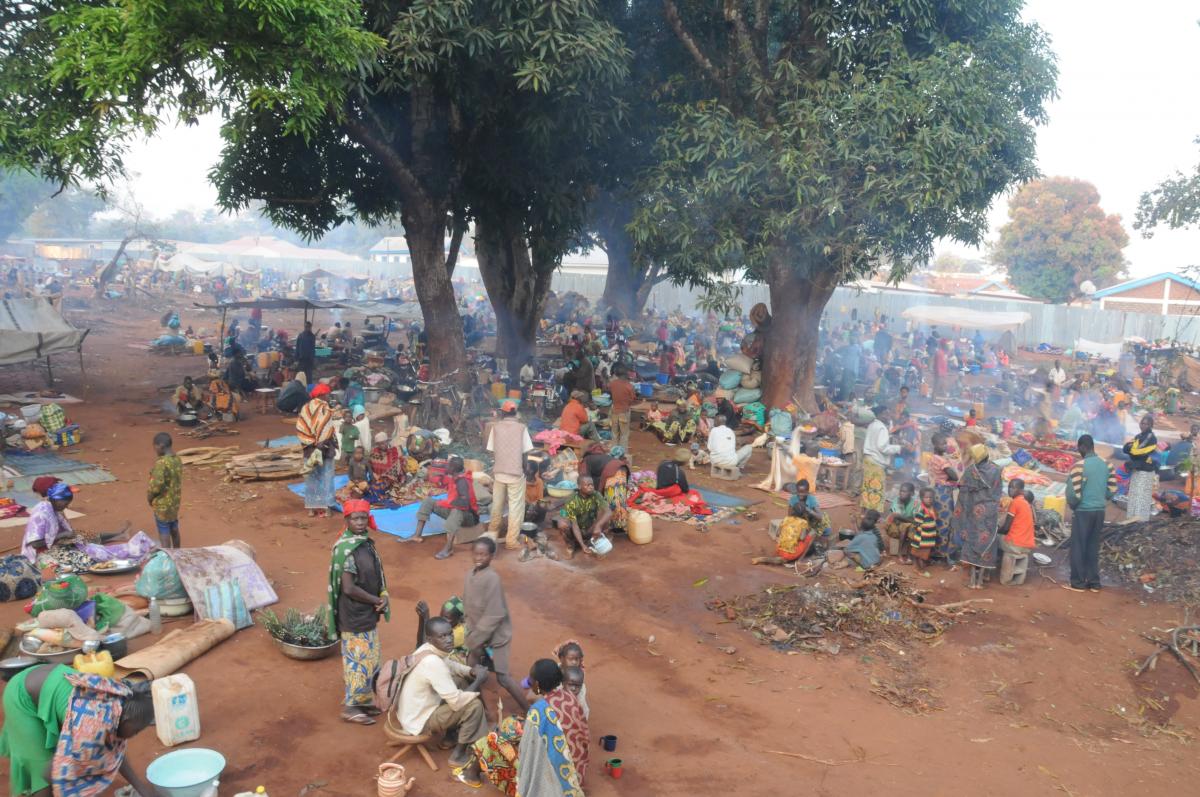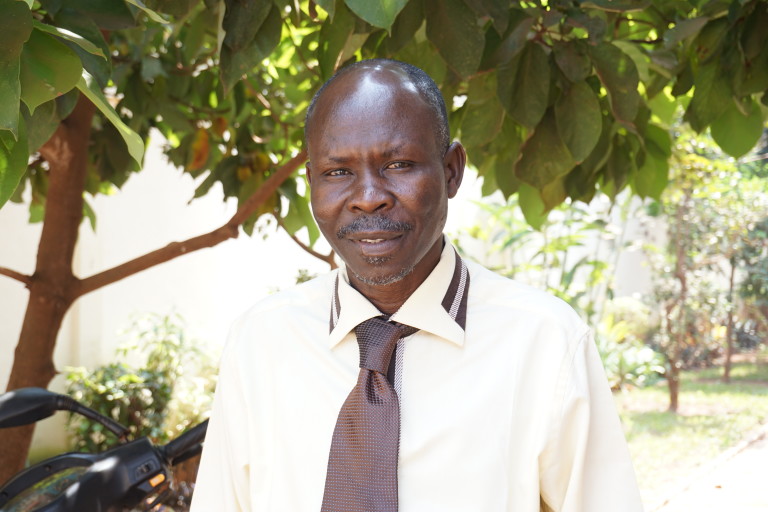HELP SUPPORT ORGANIZATIONS LIKE BRIA LONDO. GIVE TO INVISIBLE CHILDREN TODAY.
Over the last few years, we’ve worked closely with Matar and Bria Londo, equipping them with an Early Warning Radio, which is used to report and share information on violent activity, and training members on conflict management, rumor management, social cohesion, and trauma healing.
Thanks to the skills they’ve learned through these trainings, Matar and other members of the peace committee have become leaders in Bria — stepping in to prevent conflict and help ensure that everyone in the community is equipped with tools to keep their families safe and to recover from violence when it occurs. Not only that, they are using their skills to actively reduce the threat that armed groups in the area pose to local families.
Earlier this year, attacks by armed groups including former Seleka, anti-balaka, and local defense groups increased to alarming levels. Among the communities most impacted by this increase in violence was Bria. So far this year, our LRA Crisis Tracker has recorded more than 20 clashes between armed groups, or attacks on communities in the area in which dozens of civilians were killed. During one incident in May, ex-Seleka and anti-balaka fighters clashed in Bria, killing at least 17 civilians, burning and looting at least 500 households, and displacing 20,000 people from their homes.

A camp for people displaced by fighting in Bria, CAR © 2016 Lewis Mudge / Human Rights Watch
Matar and his fellow peace committee members knew that they had to take action. To protect their families, they knew that they needed to take steps to prevent armed groups from carrying out violence against their community and hold those groups accountable. So, Matar and others in the peace committee joined local authorities and civil society leaders in Bria in efforts to negotiate peace.
Together, this new mediation committee used conflict management skills learned in Invisible Children workshops to negotiate a ceasefire between a handful of armed groups operating in the area. Today, if the ceasefire is violated, Matar and the others work together to hold members of the armed groups accountable and prevent retaliatory violence.
With Invisible Children’s support, Matar and the other members of the Bria peace committee also continue to work directly with members of their community most impacted by armed group violence. They are providing families with tools and information that can help them recognize and heal from trauma. Through a variety of projects, they are uniting Christian and Muslim groups in Bria and conducting workshops on conflict mediation and rumor management. Under Matar’s leadership, the Bria peace committee has made it their mission to ensure that everyone in Bria is aware of their own role in peace and equipped to fill it.
SUPPORT THE WORK OF LEADERS LIKE MATAR. GIVE TODAY.
Thanks to heroes like Matar, communities throughout central Africa are becoming stronger and more resilient in the face of violence and exploitation. But, just as families in central Africa need their heroes, these heroes need YOU. Your support this holiday season will help equip leaders like Matar with the tools and information to take action and be the heroes that their communities need in 2018. They aren’t waiting to take action and save lives — neither should you.



